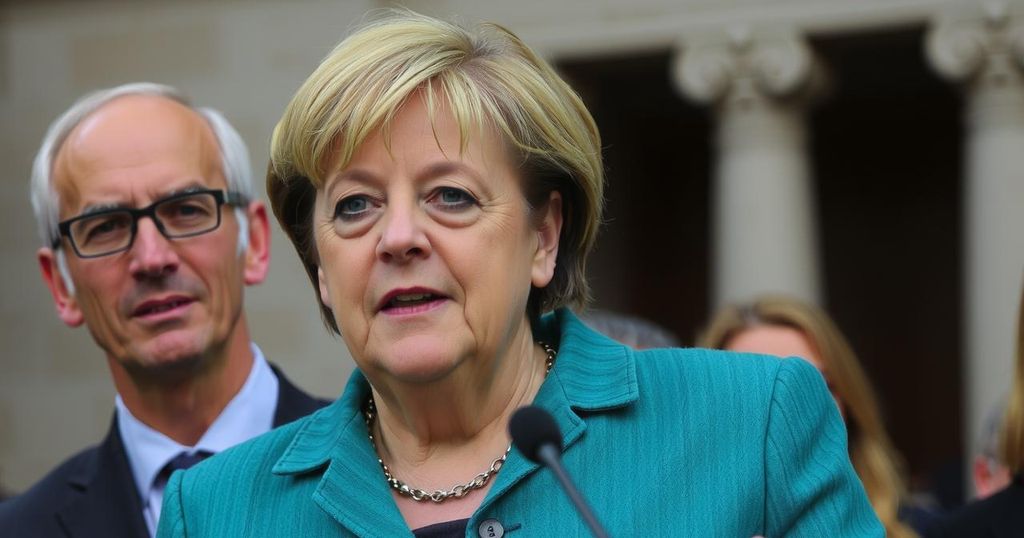German President Steinmeier Dissolves Parliament and Calls February Elections
German President Frank-Walter Steinmeier dissolved parliament, confirming a February 23 election date following the collapse of Chancellor Olaf Scholz’s government. The decision stems from internal party conflicts and increased concerns over security and immigration after a recent violent incident. Steinmeier emphasized the need for a respectful electoral campaign and highlighted significant challenges for the next government, including economic instability and foreign influence.
On Friday, German President Frank-Walter Steinmeier officially dissolved the parliament and confirmed February 23 as the date for early general elections. This decision follows the collapse of Chancellor Olaf Scholz’s coalition government last month, which resulted from escalating internal conflicts regarding strategies to rejuvenate Germany’s economy. Additionally, a recent tragic event, a car-ramming incident at a Christmas market, has intensified national discussions surrounding security and immigration policies.
In his announcement, President Steinmeier underscored the critical need for “political stability” and urged that the electoral campaign should be carried out with “respect and decency.” He called for ensuring that the campaign employs fair and transparent practices, cautioning against the threats posed by “foreign influence,” particularly on social media platforms like X, owned by Elon Musk.
He further emphasized that hate and violence must not infiltrate the electoral process. Steinmeier articulated his concerns regarding the forthcoming government’s challenges, highlighting issues such as the unstable economic climate, ongoing conflicts in the Middle East and Ukraine, and pressing discussions on immigration and climate change. In the interim, Olaf Scholz will serve as caretaker chancellor until a new government is established, a process that could require several months.
The dissolution of the German parliament by President Steinmeier is rooted in recent political turmoil within Chancellor Olaf Scholz’s coalition government, primarily attributed to disagreements among its members on methodology for economic revival. This political instability has been exacerbated by a public outcry over national security concerns following a violent incident at a Christmas market, reigniting debates on immigration and societal safety. The upcoming elections are crucial as they will set the stage for addressing various pressing issues that the new government will face.
In conclusion, the dissolution of parliament by President Steinmeier marks a pivotal moment in German politics, setting the stage for elections on February 23. The call for a respectful and transparent campaign reflects an urgent need for political stability amid pressing economic and social challenges. With Olaf Scholz remaining in a caretaker role, the nation anticipates a transition that will address critical issues confronting Germany today.
Original Source: www.barrons.com




Post Comment